
IPSC_handbook2013_PH
.pdf
INTERNATIONAL PUBLIC SPEAKING COMPETITION 2013
Ideas Are Our Greatest Weapons
The English-Speaking Union
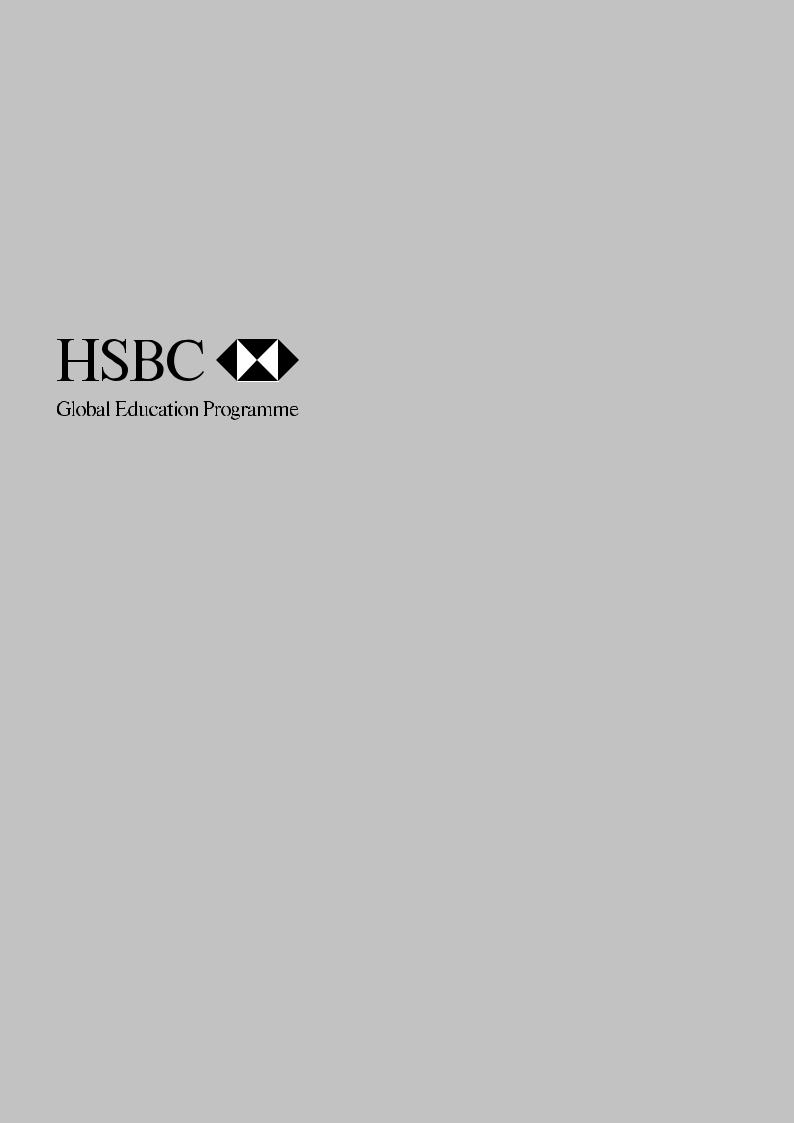
HSBC is delighted to fund the English-Speaking Union’s International Public Speaking Competition in 2013. This year, the Bank is again supporting the
final in London and also the earlier rounds in many of the participating countries.
In a changing world, the Bank promotes cultural awareness, tolerance and education.
Education equips people with the skills and knowledge to achieve their full potential. It also fosters international understanding; allowing individuals, businesses and nations to develop long-lasting, mutually beneficial relationships.
Simon Martin, HSBC’s Head of Group
Corporate Sustainability says:
“The promotion of language is central to our aims. Language opens doors, removes barriers and helps people to understand attitudes and behaviour. There are currently 450 million native speakers of English, but perhaps as many as 1 billion learning it as a second language.
With its long history and expertise, the ESU is in a unique position to introduce the English language to new speakers around the world.
The International Public Speaking Competition is an exciting event that enables talented young people to meet, demonstrate their command of English and learn more about other cultures.”
WELCOME FROM THE CONVENOR_2
Themes
Dates
THE PROGRAMME_4
Workshops
Excursions
Heats, Semi-Finals and Grand Final
Accommodation
Accompanying Guests
Funding
COMPETITION RULES_6
Registration
Eligibility
Themes
Conduct of Rounds
Disqualification
CONTENTS
CONDUCT OF ROUNDS_7
Heats
Semi-Finals
Grand Final
GUIDANCE FOR SPEAKERS_9
Prepared Speeches
Impromptu Speeches
GUIDANCE FOR ADJUDICATORS_23
General Overview
Prepared Speeches
Impromptu Speeches
Marking Schemes
Speaker Scale
Feedback
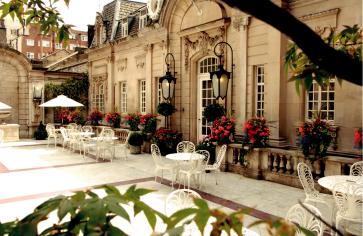
WELCOME FROM THE CONVENOR
The English-Speaking Union (ESU) was founded by Sir Evelyn Wrench in 1918. Today, the ESU is a dynamic educational charity with its international
headquarters at Dartmouth House in London, almost 40 branches in the UK and a presence in more than 50 countries worldwide. Its aims have remained
the same – to promote the value of effective communication around the globe and to help people realise their potential.
The importance of effective spoken communication skills cannot be underestimated. Even in a global village where communication is dominated by Google, Facebook, Twitter and YouTube (the list goes on), the ability to speak confidently in public remains invaluable for people in all walks of life. World leaders in politics, law, religion, business, science and technology all have an important skill in common. They speak with confidence. With the spoken word, they persuade and inspire – often transcending the limits of online and other electronic communication.
The Centre for Speech and Debate (now the Speech and Debate department) was established in 1995 to coordinate the work of the ESU in persuasive spoken English. Today, the Speech and Debate department
runs a myriad of competitions, workshops and other programmes for people of all ages and backgrounds, which focus on persuasive spoken English.
In 2010, the Speech and Debate department took over the running of the International Public Speaking Competition (IPSC). Now in its 32nd year,
the IPSC is the largest public speaking tournament in the world. Administered by the IPSC Convenor in London, in conjunction with national public speaking coordinators in approximately 50 countries around the globe, the IPSC reaches over 40,000 students every year.
The IPSC provides students with an opportunity to develop the vital skills that enable them to speak with confidence in public. Not only does the competition enhance these public speaking and critical thinking skills; it also gives students the opportunity to showcase them in an international competitive arena, which makes the practice of public speaking even more engaging and exciting for everyone involved.
The ESU is delighted to welcome you to IPSC 2013. Any questions about this year’s competition or the other activities of the ESU should be sent via e-mail to ipsc@esu.org.
Paul Holleley
IPSC Convenor
ESU Speech & Debate
September 2012
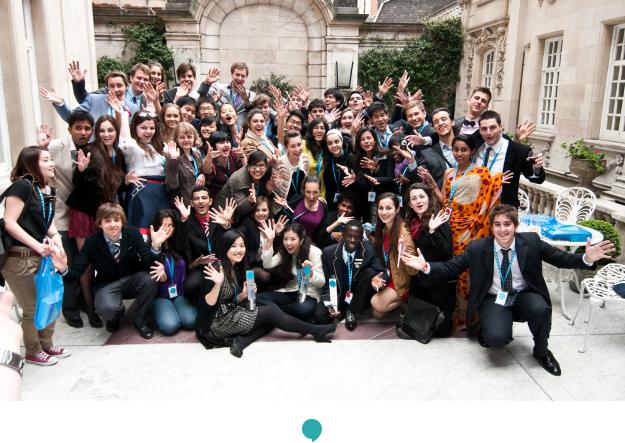
THEMES
There are two themes: the theme for national competitions and the theme for the international competition. This year’s theme for national competitions is A House Divided Against Itself Cannot Stand and may be used by competition organisers for their national public speaking competitions. This year’s theme for the international competition is Ideas Are Our Greatest Weapons.
DATES
The deadline for submitting preliminary registration forms is Friday 1 March 2013. The preliminary registration forms should be completed by national competition organisers. The deadline for submitting participant information forms and accompanying guest information forms is Friday 5 April 2013. Information forms should be completed by participants and accompanying guests. The deadline for paying the registration fee is Friday 3 May 2013.
The IPSC programme will run from Monday
13 May 2013 to Friday 17 May 2013. The heats will take place on Thursday 16 May 2013 and the semi-finals and the grand final will take place on Friday 17 May 2013.
3
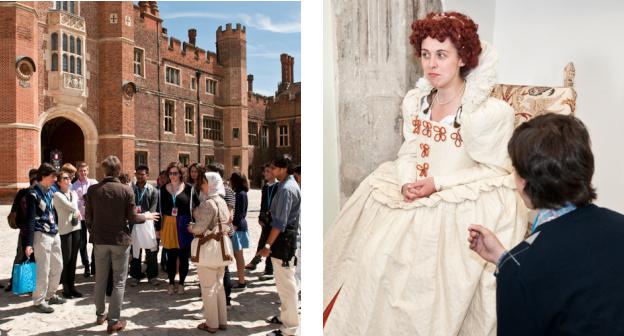
THE PROGRAMME
The IPSC is part of a five-day programme of events, including public speaking, debating and performance workshops, educational and
cultural excursions, and a two-day public speaking competition.
Workshops
As part of the five-day programme, participants receive training in public speaking and debating skills from world class ESU mentors at Dartmouth House. The training sessions are geared towards the competition. Training in expression, delivery, listening and response skills are designed to improve the participants’ delivery of their prepared speeches and their ability to listen and respond to questions. Training in organisation and prioritisation of arguments, reasoning and analysis, as well as critical thinking skills are designed to improve the
participants’ ability to write and deliver an impromptu speech.
In addition, participants receive training at Shakespeare’s Globe Theatre in London. The Globe workshops are delivered by experts in drama, theatre and performance, and are also designed to enhance the participants’ expressive and persuasive abilities, as well as their improvisation skills and their confidence generally.
Excursions
As part of the IPSC programme, participants are taken on educational and cultural excursions. In previous years, the programme has included tours of the Houses of Parliament, BBC TV studios, Hampton Court Palace, a trip to the theatre and more. The programme for IPSC 2013 will be made available on esu.org/ipsc as soon as it has been finalised.
Heats, Semi-Finals and Grand Final
The competition takes place over the last two days of the IPSC programme. The heats take place on Thursday, the semi-finals take place on Friday morning and the grand final takes place on Friday afternoon. There is a post-grand final reception at Dartmouth House on Friday evening.

Accommodation
The registration fee covers bed and breakfast hotel accommodation in central London for five nights (Monday 13 May 2013 to Friday 17 May 2013 inclusive). The registration fee does not cover any extra accommodation which may be required by participants or accompanying guests who arrive early or leave late. Extra accommodation must be arranged with the hotel privately. Hotel details will be made available on esu.org/ipsc as soon as they have been finalised.
Accompanying Guests
Students who travel to London to participate in the IPSC are not required to be accompanied by an adult. However, participants are welcome to bring guests with them if they wish (usually a parent, guardian or public speaking coach).
“Accompanying guest” (for the purposes of the IPSC and this handbook) means a guest who has submitted the accompanying guest information form and paid the accompanying guest registration fee. Accompanying guests have bed and breakfast accommodation provided for them by the ESU for the duration of the IPSC programme, and are invited
to attend the welcome meeting on Monday, the heats on Thursday and the semi-finals and the grand final on Friday. A maximum of two accompanying guests per participant may attend IPSC 2013.
Any person accompanying a participant who has not submitted the accompanying guest information form and has not paid the accompanying guest registration fee is not an “accompanying guest” (for the purposes of the IPSC and this handbook). Such persons will not have their accommodation provided
for them by the ESU and will not be guaranteed entry to the heats, the semi-finals or the grand final.
Funding
The participant registration fee covers the following costs for the duration of the five-day IPSC programme: accommodation, travel in and around London (participants receive a travel card on arrival) and all meals. The participant registration fee also covers the cost of all workshops, tours and other events and excursions associated with the IPSC programme. The registration fee does not cover the cost of the participants’ air travel to and from London or the cost of the participants’ travel from the airports in London to their hotels.
The accompanying guest registration fee covers the following costs for the duration of the five-day IPSC programme: accommodation and breakfast. The accompanying guest registration fee does not cover travel in and around London, any other meals or the cost of the accompanying guests’ air travel to and from London. London travel information can be found at tfl.gov.uk.
Participants may apply to have their registration fee partially or wholly waived or the cost of their flights partially or wholly funded from the IPSC Assistance Fund. Waiver and funding applications must be made in writing to the IPSC Convenor. Funds will be allocated at the discretion of the IPSC Convenor and on the basis of necessity (as demonstrated in participants’ written applications). Accompanying guests may not apply for funding from the IPSC Assistance Fund.
5
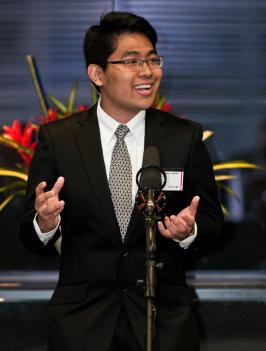
COMPETITION RULES
Registration
The closing date for countries to register for the competition is Friday 1 March 2013. This must be done using the preliminary registration form.
The closing date for participants or accompanying guests to submit their final information for the competition is Friday 5 April 2013. This must be done using the participant information form or the accompanying guest information form.
The closing date for organisers, participants or accompanying guests to pay their registration fee is Friday 3 May 2013. This must be done using the payment form. The participant registration fee is £160. The accompanying guest registration fee is £320 (twin room) or £470 (single room).
All forms must be completed using Microsoft Word (or other word processing software) and must be submitted by e-mail to ipsc@esu.org.
Organisers, participants or accompanying guests who are unable to submit their registration or information form and/or make their payment within the timeframe provided and/or in the manner provided, for whatever reason, must contact the IPSC Convenor directly to request and extension or exemption.
All registration, information and payment forms are available to download from esu.org/ipsc.
Eligibility
One participant per competing country is eligible to enter IPSC 2013.
Two accompanying guests per participant are eligible to attend IPSC 2013.
Participants must be winners of an ESU public speaking competition in their country or winners of another public speaking competition in their country, which is officially recognised by the ESU (e.g. that of a partner organisation).
Participants must be students aged between 16 and 20 at the time of the competition (i.e. the oldest possible participant would turn 21 the day after the competition ends).
Participants must be passport holders, or deemed to be nationals, of the country they are representing.
Themes
Participants must write and deliver a speech, the title and content of which are connected with the theme for the competition. Participants may interpret the theme in any way they wish, but may not use the theme as the title of their speech.
This year’s theme for national competitions is
A House Divided Against Itself Cannot Stand and may be used by competition organisers for their national public speaking competitions. This year’s theme for the international competition is
Ideas Are Our Greatest Weapons.
Conduct of Rounds
All the information pertaining to the heats, the semi-finals and the grand final explained separately on pages 7-8 forms part of the competition rules.
Disqualification
Participants who breach the rules relating to registration, eligibility, themes or the conduct of rounds may be disqualified.
Participants who, in the opinion of the IPSC Convenor, act in a manner which would bring themselves or the ESU into disrepute may be disqualified.
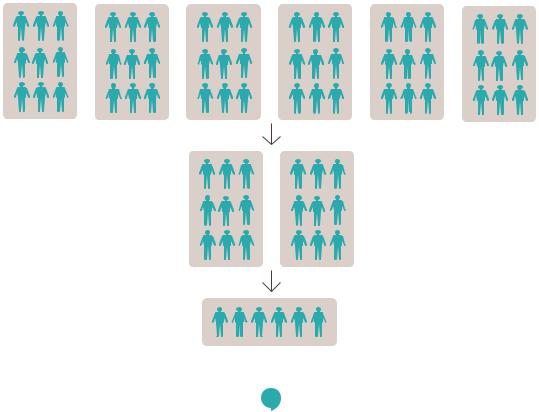
CONDUCT OF ROUNDS
Heats
The heats are the first stage of the competition.
Participants are randomly assigned to one of six heats (determined by the IPSC Convenor).
Participants speak in a random order (determined by the IPSC Convenor).
Participants deliver their five-minute prepared speech (which must be connected with the theme for the international competition).
A timekeeper gives an audible signal at 4:30 minutes (to indicate that 30 seconds remain), at 5:00 minutes (to indicate that the participant’s time is up), and at 5:30 minutes (at which point the participant must conclude their speech immediately).
Participants who speak for less than 4:30 minutes or more than 5:30 minutes may be penalised by the adjudicators.
The speech is immediately followed by a 3-4 minute question period.
Questions may come from members of the audience or members of the adjudication panel and participants should respond to each question individually.
Audience members who are connected with a participant (e.g. a family member or an
accompanying guest) may not ask questions of that participant.
No visual aids, props or amplifying microphones may be used (recording devices may be used with prior permission from the IPSC Convenor).
The adjudicators judge the participants in the heats in accordance with the adjudication guidelines and the marking scheme for prepared speeches, and the speaker scale, contained in this handbook.
Participants may seek feedback from the adjudicators, but only after the decision has been announced.
The adjudicators’ decision is final.
Three participants progress from each heat to the semi-finals.
Fig.1
Heats: All Participants
Semi-Finals:
18 Participants
Grand Final:
6 Participants
7
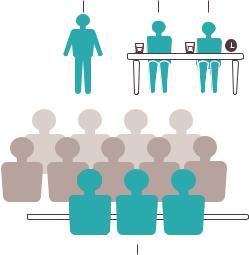
Semi-Finals
The semi-finals are the second stage of the competition.
Participants who progress from the heats are randomly assigned to one of two semi-finals (determined by the IPSC Convenor).
Participants speak in a random order (determined by the IPSC Convenor).
Participants deliver a three-minute impromptu speech on a new topic.
Participants choose their topic from a list of three, which they receive 15 minutes before they must deliver their speech.
During the 15 minute preparation period:
•participants are given a quiet room in which to choose their topic and prepare their speech;
•participants may not use any printed or electronic resources for the purpose of research;
•dictionaries and writing materials (blank paper, palm or cue cards, pens, pencils etc.) are made available to participants.
A timekeeper gives an audible signal at 2:30 minutes (to indicate that 30 seconds remain), at 3:00 minutes (to indicate that the participant’s time is up) and at 3:30 minutes (at which point the participant must conclude their speech immediately).
Participants who speak for less than 2:30 minutes or more than 3:30 minutes may be penalised by the adjudicators.
The impromptu speech is not followed by a question period.
No visual aids, props or amplifying microphones may be used (recording devices may be used with prior permission from the IPSC Convenor).
The adjudicators judge the participants in the semifinals in accordance with the adjudication guidelines and the marking scheme for impromptu speeches, and the speaker scale, contained in this handbook.
Participants may seek feedback from the adjudicators, but only after the decision has been announced.
The adjudicators’ decision is final.
Three participants progress from each semi-final to the grand final.
Grand Final
The grand final is the last stage of the competition.
Participants speak in a random order (determined by the IPSC Convenor).
Participants deliver their five-minute prepared speech (which is the same speech they delivered for their heat).
The rules relating to timing, questioning and adjudication apply to the grand final exactly as they apply to the heats (see above).
No visual aids or props may be used. Amplifying and/or recording microphones may be used at the discretion of the IPSC Convenor (other recording devices may be used with prior permission from with IPSC Convenor).
The adjudicators select a winner and a runner up, both of whom receive an award, and the audience votes by secret ballot to decide the recipient of the Audience Choice Award (who may also be the winner or the runner up).
Fig. 2
•The chairperson introduces the speaker, giving their name, country and the title of their speech. After the speech, the chairperson invites questions from the audience and the adjudicators. Questions must be addressed to the chairperson.
•The timekeeper records the length of each speech for the adjudicators and gives audible signals indicating how much time has elapsed for each speech.
•The chairperson and the timekeeper sit together at the front or at the side of the room in view of the speaker, the adjudicators and the audience. The speaker stands at the front of the room, in view of the adjudicators and the audience.
•The adjudicators (adjudication panel) sit at the back of the room, behind the audience.
Speaker |
Chairperson Timekeeper |
Adjudicators
